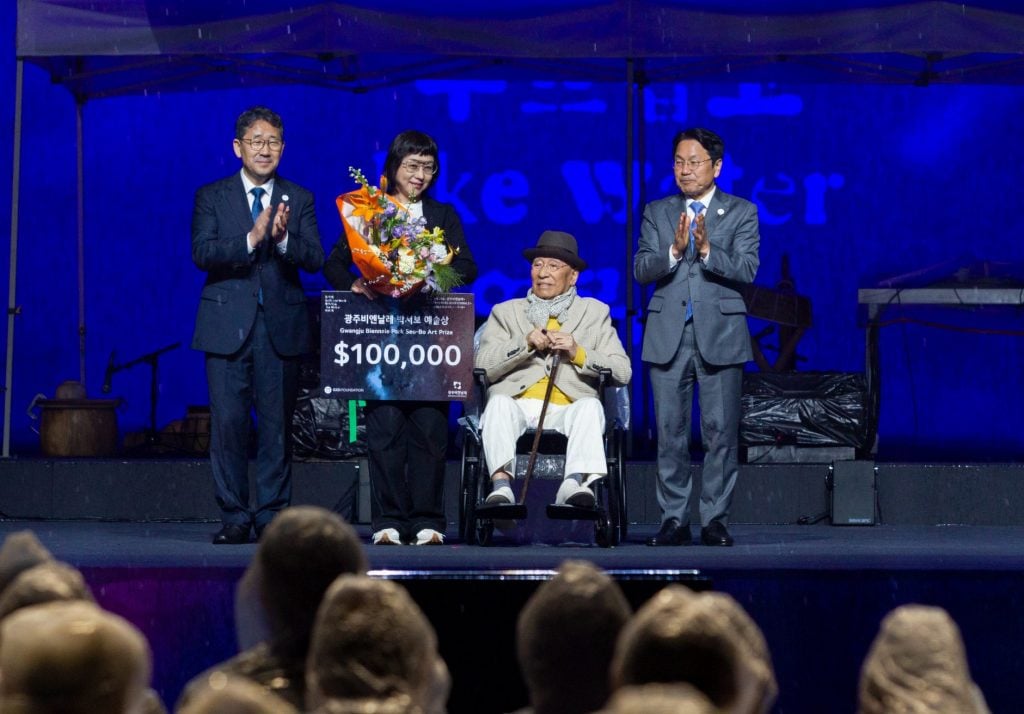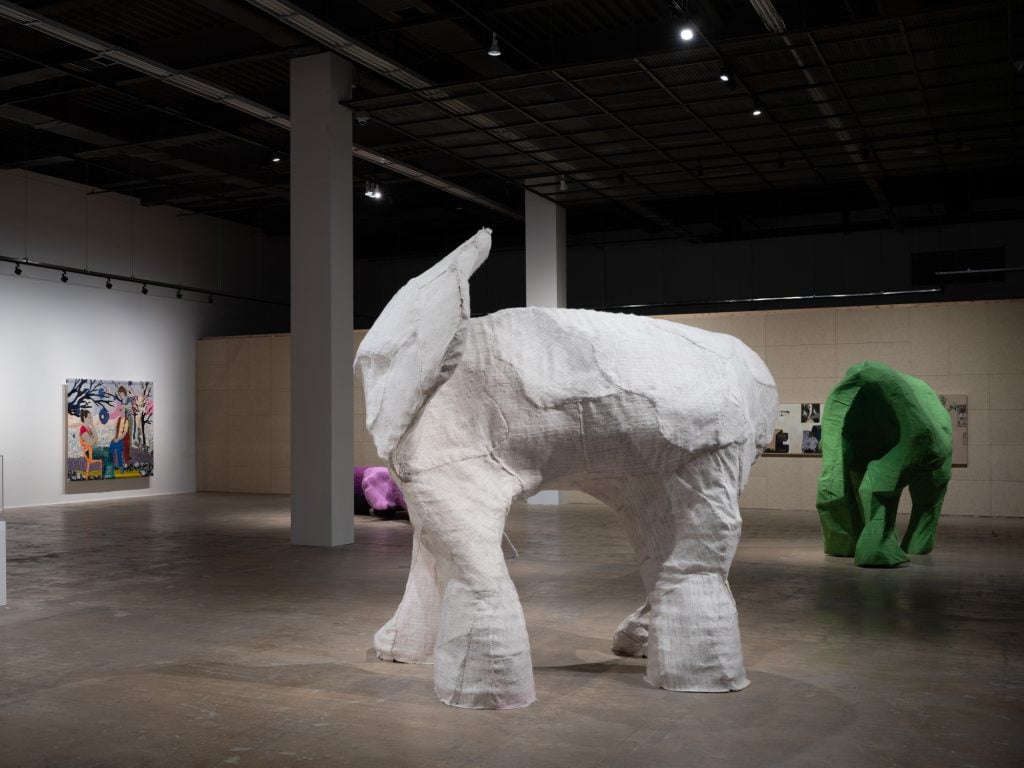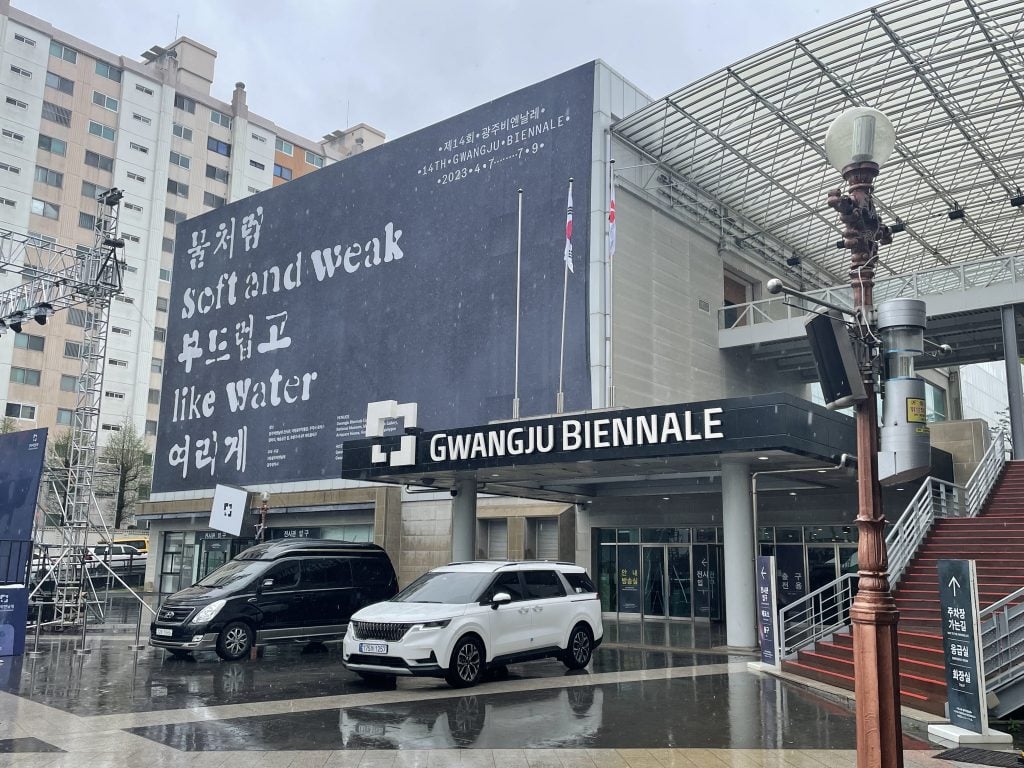Politics
The Gwangju Biennale Has Abolished Its Park Seo-Bo Art Prize After Just One Edition Amid Protests
Organizers of the biennale plan to establish a new, more progressive award system after soliciting opinions from different communities.

Organizers of the biennale plan to establish a new, more progressive award system after soliciting opinions from different communities.

Vivienne Chow

The Gwangju Biennale art prize named after Dansaekhwa master Park Seo-Bo has been cancelled after handing out its first award just a month ago. The move comes amid protests that the artist had little to do with an event that was built upon the South Korean city’s pro-democracy spirit.
The news emerged on Wednesday when the 91-year-old Park wrote on his Instagram that he has reached the agreement with the biennale foundation to abolish the art prize, which was established based upon the $1 million donation he made via his GIZI Foundation.
“The Gwangju Biennale Park Seo-Bo Art Prize is discontinued,” a spokesperson of the Gwangju Biennale Foundation, organizers of the top biennial in Asia, confirmed in a statement to Artnet News on Thursday. “In response to opposition to the Gwangju Biennale Park Seo-Bo Art Prize that has emerged recently, the Gwangju Biennale Foundation sought diverse opinions from the art community regarding the award’s subsequent operational plans and continued discussions with [Park’s] GIZI Foundation.”
The foundation also announced to the international press on the same day that it has appointed French writer and curator Nicolas Bourriaud as the artistic director for next year’s 15th edition, without mentioning the abolition of the art prize.

Oum Jeongsoon, Elephant Without Trunk (2023). Winner of the first (and last) Park Seo Bo Art Prize at the 14th Gwangju Biennale, 2023. Courtesy the artist and Gwangju Biennale Foundation. Photo: glimworkers.
“The Gwangju Biennale is cluttered with the Park Seo-Bo Art Prize issue,” the artist wrote in his Instagram post, translated from Korean into English. “Since it was announced in February last year, there was sufficient time to collect opinions. Had there been a lot of objections [in advance], I would have found another solution.”
Objection to the award had not been evident until the opening night of the 14th edition of Gwangju Biennale on April 6. A small scuffle broke out during the opening ceremony when a protester chanted slogans and distributed flyers calling for the abolition of the art prize, saying that it “tarnishes the Gwangju spirit.”
The Gwangju Biennale, which will celebrate its 15th anniversary next September, was founded to commemorate the 1980 Gwangju Uprising against the country’s military regime and an ensuing massacre.

Gwangju Biennale 2023 exhibition hall. Photo: Vivienne Chow.
The new award reflected organizers’ ambition to enhance the event’s status as Asia’s answer to Venice Biennale. But the protest accused Park of “stealing” the biennial with the $1 million donation, charging the artist of having remained silent amid the country’s decades of political struggle while pursuing his art.
“He was a thorough aesthetic modernist who lived for his personal glory,” protesters charged in their flyer, calling on the organizers to establish other prizes such as one named after the late artist Oh Yoon, a key figure of Korea’s Minjung art movement (People’s Art) in the 1980s, or pioneering media artist Nam June Paik.
During the opening, the protester was quickly escorted out of venue. Park, in a wheelchair, handed the prize to South Korean artist Oum Jeongsoon, who was chosen as a winner for Elephant Without Trunk (2023), an installation in the main exhibition.
“It is regrettable that the problem was raised on the day of the event,” the artist said in his Instagram post, adding that it had been his hope to provide support for the younger generation. “I think I will have to proceed with my last dream in a different way.”
The Gwangju Biennale Foundation said it will strive to “establish a more progressive award system” after soliciting opinions from various communities. The money donated by Park, excluding the $100,000 prize money that was already handed out, will be returned to the GIZI Foundation, the Gwangju Biennale Foundation added.
The Gwangju Biennale runs through July 9.